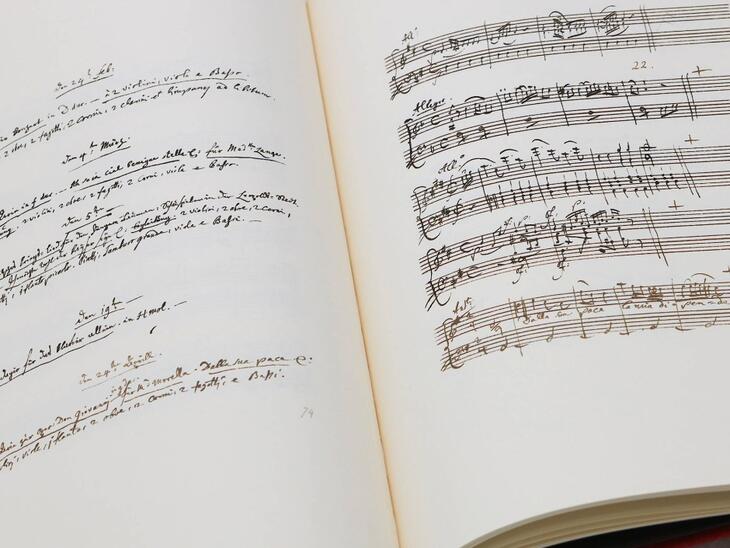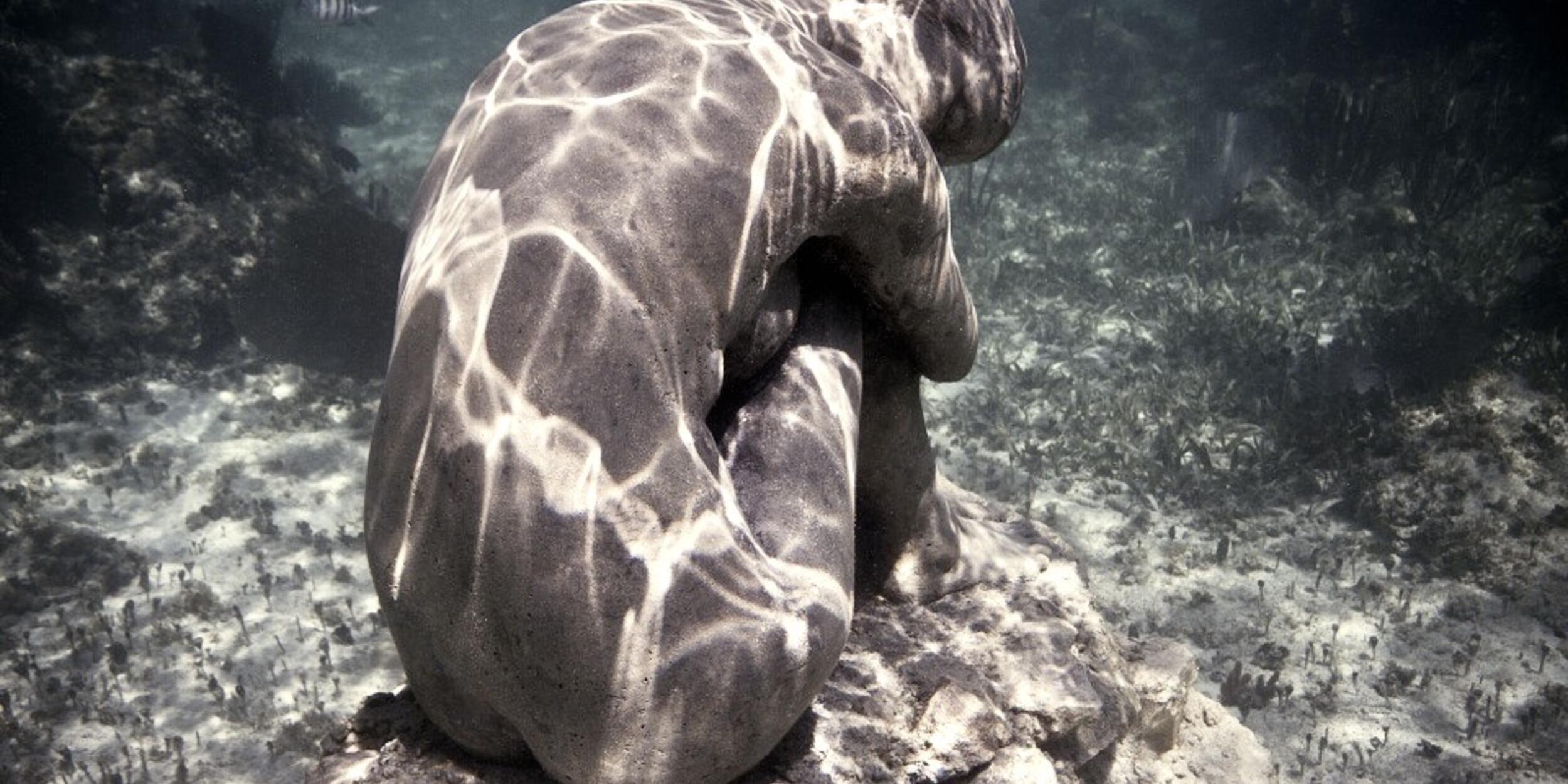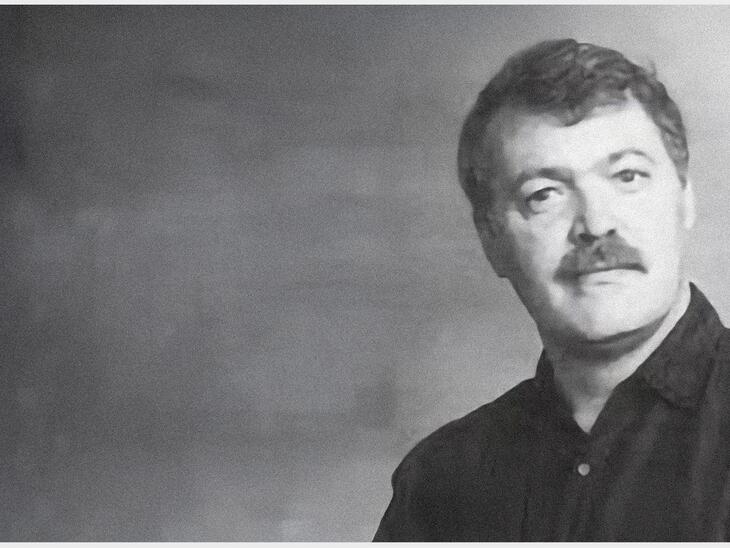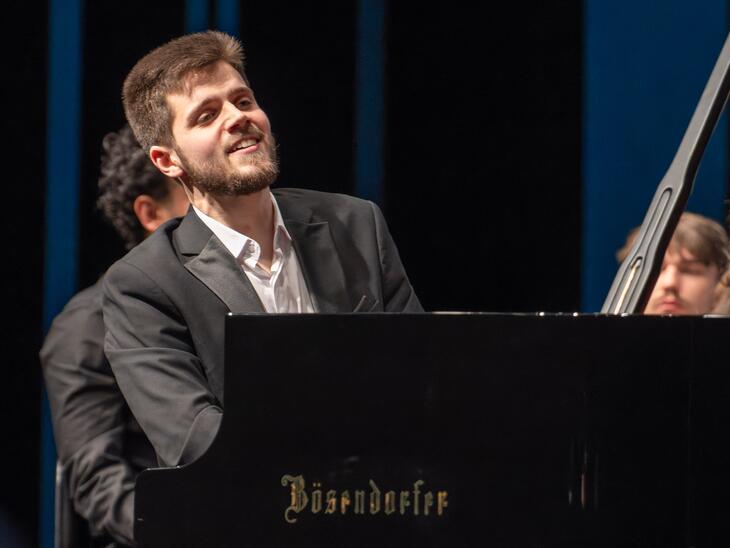Myths always tell of what has been, but also of a past whose consequences continue to this day, thus of becoming and having become - of us. (Michael Köhlmeier) In the love myth between Dido and Aeneas melodiously set to music by Henry Purcell (1659-1695) according to the libretto by Nahum Tate, she commits suicide because he leaves her. How much does this narrative annoy you?
Elisabeth Gutjahr: I have to smile about the narrative, it points to wishful thinking about a beautiful story with a potentially great fall, about a great love-death - nourished by the story of Virgil, whose Aeneid provided the basis for the libretto, artfully and lustfully transformed into music by Purcell. It should be noted in passing that this love story could not have happened at all, because there are several centuries between the historical lifetimes of Elissa-Dido and Aeneas. She was the founder of Carthage and thus the ruler of a prosperous, powerful trading empire. The history of Aeneas appears much paler on closer examination. In Troy he probably still lived with his wife, whose trace is lost after Aeneas' departure from the island. Then there is the son they share, who was a minor at the time of the flight, and a father who sits on his shoulders. For me, this paints a picture of a man who carries a great burden with him and is defined by the fulfilment of the tasks he is given. Rather a marginal hero of the Trojan War, dominated by his father and the will of the gods. Elissa-Dido was certainly the more interesting figure, so she also forms a welcome projection surface for Roman fantasies. A Virgil would probably not have been able to cope with a woman passionately desiring a man without thereby becoming dependent on him. Perhaps it would also have been she who sends Aeneas on, solely for the sake of her freedom. So it is quite possible to imagine that mann wrote entirely according to his own opinion. The fact is, Elissa had a long and fulfilled life, very successful as a ruler. Aeneas, on the other hand, was instructed to bring his son to the place where he was to found Rome.
You have been rector of the Mozarteum University since 2018 and with Elissa you are also appearing as a librettist again for the first time in several years. What attracted you to a contemporary frame narrative for Dido and Aeneas? Who is your Elissa?
What particularly appealed to me, for one thing, is the freedom with which we can look at these stories today, historically, culturally and aesthetically. We can imagine a much more dazzling Elissa-Dido. The many possible readings of the plot found expression in 25 freely placeable verses of the libretto, which I wrote in German. Only an original song telling of the seasons was to give the prologue and epilogue a linguistic flavour from the period. I.e. not to send Purcell's British Baroque story into extra time, but also to take desert, sand, sea and migration with it. Henry Fourès eventually set the verses, started in German, then switched to English and inserted sounds from African languages.
On the other hand, Elissa should be allowed to be royal, to act and think in a self-determined way. She knows what she is doing and what she is getting into. That the rawness and borderline behaviour of an Aeneas, who comes from the sea with his men as a physically marked fugitive, as it were, may have appealed to her. In these times, patriarchy was not the only form of society. It is true that the first great Greek patriarchal classicism began, but Cleopatra and other female figures, who in our reading always failed and had to die, strangely enough managed to achieve quite a lot. This view from the outside, almost as if Elissa-Dido were looking at the Roman-Baroque narrative from today and having a little fun with it without accusing anything, that's what I like. Everything has its place, and at the same time we are aware that we are operating in modes that we are far from having overcome. All these myths are like images that rest and live on in us. And when we deal with them creatively, overwrite them and retell them, we always learn something for ourselves and for the people we surround ourselves with. I think that's also nice for the students, who can think and design for themselves here. In this production, they have the rare opportunity to sing a repertoire opera and at the same time to participate in the creation of a new music theatre episode, they can try out changes of perspective and are invited to test themselves.
Elissa is not your first collaboration with the French composer Henry Fourès. What do you like about his music or where does his music and your language meet?
Henry Fourès always composes and conceives for the realisation, the moment when the music sounds, i.e. his writing is not characterised by the exhaustion of theoretical conceptions, but rather he concentrates on the narrative power and the tonal architecture of the music - sound, rhythm, silence, energy. I like that very much, because it also enables a different kind of listening. His collaboration with Luc Ferrari can be heard in his music. Luc Ferrari has worked a lot with sound recordings; in works like Presque rien, for example, you can hear a night sky without it being explicitly illustrated. I find this eavesdropping on realities or utopias extremely poetic. Henry Fourès incorporates this into his compositions, and there are moments with him when you can hear water or wind or landscape. Sounds that blend into the music quite unpretentiously.
Kai Röhrig leads the production musically and conducts, Rosamund Gilmore directs. What can the audience look forward to?
What I find very successful about Elissa, both in Prologue and Epilogue, is the interweaving of a very modern sound with instruments that we know mainly from early music and the sound of historical performance practice. In the prologue, one approaches Henry Purcell's baroque opera almost as if it were a ship anchored at the edge of history, but then in the epilogue it sails off again into an uncertain future. This sound story is exceedingly beautiful and very finely orchestrated.
About the direction, it should be noted that there is virtually no stage box in Siena, Italy, where both Elissa and Dido and Aeneas are performed as part of a Baroque Summer Academy in August. So Rosamund Gilmore had to find a solution to replace an elaborate stage set, and has draped a huge pile of clothes on the stage that, like a night-drowned sea, exposes numerous associations. It begins atmospherically and figures emerge from this sea, almost like refugees on a beach. With references to now and then, which then dissolve again into something abstract. I find these changes very successful. All in all, the whole team of teachers and students has my respect - it's an extraordinary production.
- - -
Elisabeth Gutjahr is Professor of Rhythm and has been Rector of the University Mozarteum Salzburg since 2018. Gutjahr has been writing libretti for operas and texts for music since 1989. In 2021 she appeared as director of Peer Gynt at the Tiroler Festspielhaus Erl.
(First published in Uni-Nachrichten / Salzburger Nachrichten on 10 June 2023)




